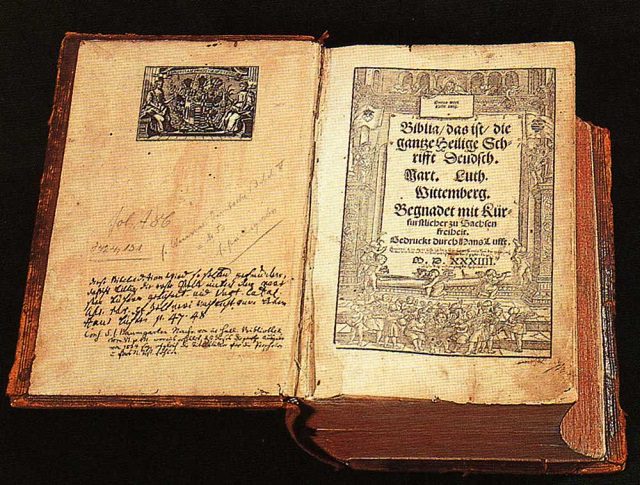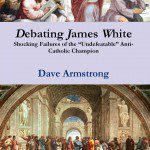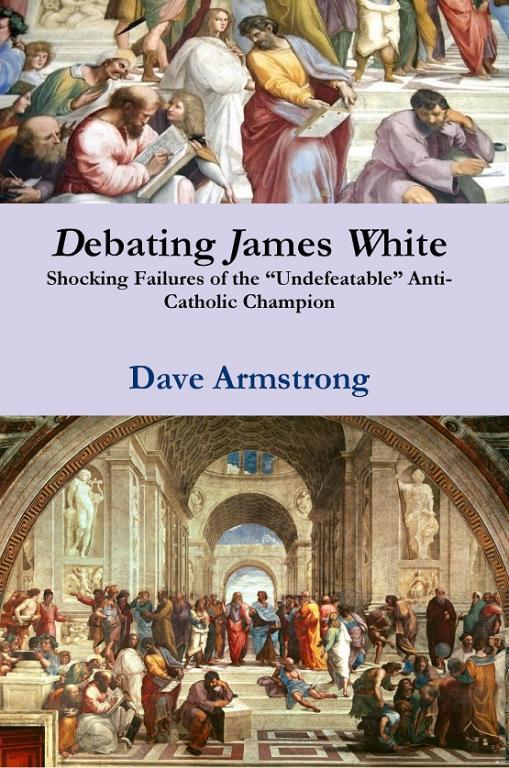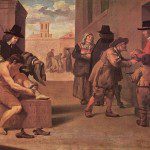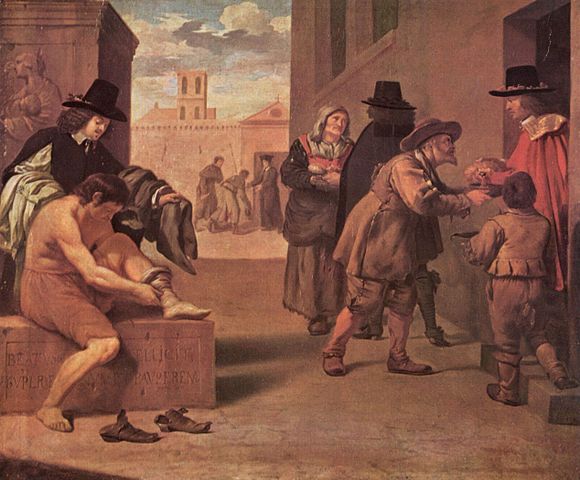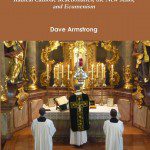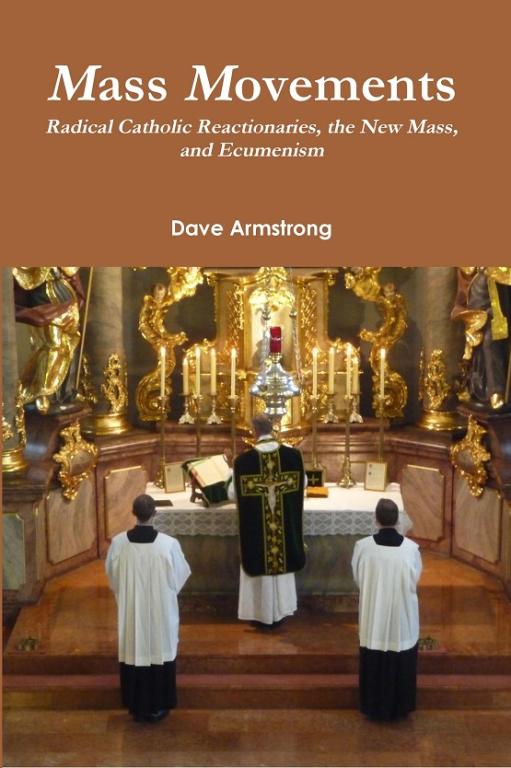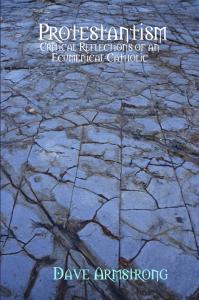
BLU-82 Daisy Cutter Fireball [public domain / Wikimedia Commons]
***
Original title: “Man-Centered” Sacramentalism: The Remarkable Incoherence of James White: How Can Martin Luther and St. Augustine Be Christians According to His Definition?
***
(11-26-03)
*****
Bishop James White (one of the most vociferous critics of Catholicism today) and I engaged in a vigorous postal exchange in 1995. I have his letters in my possession, and the “debate” has been posted on my website for many years, with the good bishop’s permission. In it, he stated:
If you feel a communion that replaces the grace of God with sacraments, mediators, and merit, can be properly called “Christian,” then please go ahead and use the phrase. But please understand that if a person shares the perspective of the epistle to the churches of Galatia they will have to hold to a different understanding, and hence may not be as quick to use the term “Christian” of such a person.(4-6-95, p. 2 and 5-4-95, p. 2)
I pointed out (surely he was aware, as a student of the history of theology) that Martin Luther believed in baptismal regeneration and the Real Presence in the Eucharist. I set out to prove — by means of an elaborate but very solid chain of logical deductive reasoning, using White’s own remarks as a premise — that by White’s own stated reasoning, Luther would not be a Christian.
If a communion that supposedly “replaces” grace with sacraments cannot properly call itself Christian, then it seems to me that a person who does the same (since White assumes a “replacement” is occurring rather than an appropriation or application of grace through sacraments) should also not be considered a Christian. Or if they are, then Catholicism should be deemed Christian as well. But that is assuming logical consistency and a sensible, coherent perspective on these matters. Much of the thrust of my argument in my long debate with Bishop White in 1995 was designed to show that his position is not internally consistent and coherent. A close analysis of the present topic demonstrates this, I think, very clearly.
The logical outcome of White’s false premise produces the absurd state of affairs of a non-Christian (who didn’t even comprehend God’s grace) bringing back into practice the gospel and true Christianity (as he and his followers often claimed). Elsewhere in the debate, I proved how (logically), White’s arguments would also mean that C.S. Lewis, Dietrich Bonhoeffer, John Wesley, and Philip Melanchthon were not Christians, either.
Basically, all non-Calvinists would be (doctrinally) excluded from confessing, creedal, or orthodox Christianity if one consistently applied Bishop White’s criteria, which is why he stated in the same exchange that I was never “truly a Protestant to begin with” because I was an Arminian evangelical Protestant (1977-1991) who (as I noted in my conversion story in Surprised by Truth) had always rejected the Calvinist distinctives of double predestination and total depravity.
The men above (Anglicans and Lutherans) also rejected these doctrines; ergo, they, too, were not Protestants and therefore, not Christians (by White’sreasoning; not mine; I admire Wesley and Bonhoeffer very much and Lewis has long been my favorite Christian writer). He has never replied to my reductio ad absurdum. In the next year after our debate, Bishop White was still emphasizing this animus against sacramentalism, in his book against Catholicism, objecting to the fact that:
. . . salvation is mediated through the Sacraments of the Church.. . . God’s grace is said to be channeled through the Sacraments . . . .
(White, 128-129, 179)
This is precisely what Luther believed:
Little children . . . are free in every way, secure and saved solely through the glory of their baptism . . . Through the prayer of the believing church which presents it, . . . the infant is changed, cleansed, and renewed by inpoured faith. Nor should I doubt that even a godless adult could be changed, in any of the sacraments, if the same church prayed for and presented him, as we read of the paralytic in the Gospel, who was healed through the faith of others (Mark 2:3-12). I should be ready to admit that in this sense the sacraments of the New Law are efficacious in conferring grace, not only to those who do not, but even to those who do most obstinately present an obstacle.(The Babylonian Captivity of the Church, 1520, in Steinhauser, 197)
Expressed in the simplest form, the power, the effect, the benefit, the fruit and the purpose of baptism is to save. No one is baptized that he may become a prince, but, as the words declare [of Mark 16:16], that he may be saved. But to be saved, we know very well, is to be delivered from sin, death, and Satan, and to enter Christ’s kingdom and live forever with him . . . Through the Word, baptism receives the power to become the washing of regeneration, as St. Paul calls it in Titus 3:5 . . . Faith clings to the water and believes it to be baptism which effects pure salvation and life . . .
When sin and conscience oppress us . . . you may say: It is a fact that I am baptized, but, being baptized, I have the promise that I shall be saved and obtain eternal life for both soul and body . . . Hence, no greater jewel can adorn our body or soul than baptism; for through it perfect holiness and salvation become accessible to us . . .
(Large Catechism, 1529, sections 223-224, 230, pp. 162, 165)
Luther comments on John 3:5:
Christ says clearly and concisely that the birth referred to here must take place through water and the Holy Spirit. This new birth is Baptism . . . And begone with everyone who refuses to accept this doctrine!
. . . we reply, “Of course, they believed that John purified by his Baptism; for by means of it he joined you to Christ.” Thus one is saved according to the way in which Christ instructed Nicodemus (John 3:5)
(Sermons on the Gospel of St. John, Chapters 1-4, 1540; in LW, 22, 287-288, 429)
Note the terms that Luther uses to describe what baptism does (emphases added). His view is exactly the sort of one that James White condemned above:
Little children . . . are free in every way, secure and saved solely through the glory of their baptism.. . . the sacraments of the New Law are efficacious in conferring grace . . .
. . . the power, the effect, the benefit, the fruit and the purpose of baptism is to save.
. . . baptism receives the power to become the washing of regeneration.
. . . baptism which effects pure salvation and life . . .
. . . being baptized, I have the promise that I shall be saved and obtain eternal life …
. . . baptism; . . . through it perfect holiness and salvation become accessible to us …
[Baptism gives] the entire Christ and the Holy Spirit with his gifts. [see below]
Martin Luther holds an even stronger view than the Catholic one on baptism: in his view the grace of baptism cannot be lost:
Thus the papists have attacked our position and declared that anyone who falls into sin after his Baptism must undergo a distinct type of purification.(Sermons on the Gospel of St. John, Chapters 1-4, 1540; in LW, 22, 429-430)
Describing Luther’s view on baptism, the expert on his theology, Paul Althaus, citing Luther, states:
Through baptism, “I am promised that I shall be saved and have eternal life, both in body and in soul.” Baptism does not give a particular grace, not only a part of salvation, but simply the entire grace of God, “the entire Christ and the Holy Spirit with his gifts.” The total gift of baptism is meaningful throughout the Christian’s life and remains constantly valid until he enters into eternity. He lives from no other grace than from that promised and conveyed to him through baptism, and he never needs new grace.(Althaus, 353-354)
John Wesley, the founder of Methodism, but actually a lifelong Anglican (reasoning much like St. Augustine often does) accepts the notion of baptism being a seal, without denying that it is at the same time a means or cause of regeneration. He doesn’t dichotomize as Calvin does, but thinks in far more biblically-oriented terms. Hence he comments in his Notes on the Bible, on John 3:5, Acts 22:16, Titus 3:5, and 1 Peter 3:21:
Except a man be born of water and of the Spirit – Except he experience that great inward change by the Spirit, and be baptized (wherever baptism can be had) as the outward sign and means of it.Baptism administered to real penitents, is both a means and seal of pardon. Nor did God ordinarily in the primitive Church bestow this on any, unless through this means.
. . . Sanctification, expressed by the laver of regeneration, (that is, baptism, the thing signified, as well as the outward sign,) . . .
. . . through the water of baptism we are saved from the sin which overwhelms the world as a flood: not, indeed, the bare outward sign, but the inward grace . . .
Elsewhere Wesley makes this even more clear:
. . . there is a justification conveyed to us in our baptism, or, properly, this state is then begun.(The Principles of a Methodist Farther Explained, 1746; in Lindstrom, 106-107)
. . . the ordinary instrument of our justification.
(A Treatise on Baptism, 1758; in Lindstrom, 107)
Luther holds the same kind of view regarding the Eucharist:
Even if I followed the Karlstadtian teaching and preached the remembrance and knowledge of Christ with such passion and seriousness that I sweated blood and became feverish, it would be of no avail and all in vain. For it would be pure work and commandment, but no gift or Word of God offered and given to me in the body and blood of Christ . . .For whoever so receives the cup as to receive the blood of Christ which is shed for us, he receives the new testament, that is, the forgiveness of sins and eternal life.
(Against the Heavenly Prophets in the Matter of Images and Sacraments, 1525; LW, 40, 213, 217)
But for some reason, Bishop White (as far as I know) is most reluctant to argue that Martin Luther and John Wesley were not Christians, on the basis of believing the same thing that causes him to conclude that Catholicism is not a Christian belief-system. Once in a while it is good to point out anomalies like this.
Likewise, we find St. Augustine (whom James White calls “great” and “the great bishop of Hippo” in his book: pp. 122-123) espousing these ideas which White thinks are hostile to sola gratia and a biblical, Christian worldview:
Just as Judas to whom the Lord handed a morsel, furnished in himself a place for the devil, not be receiving something wicked but by receiving it wickedly, so too anyone who receives the sacrament of the Lord unworthily does not, because he himself is wicked, cause the Sacrament to be wicked, or bring it about that he receives nothing because he does not receive it unto salvation. For it is the Body of the Lord and the Blood of the Lord even in those to whom the Apostle said: “whoever eats and drinks unworthily, eats and drinks judgment to himself.”(Baptism, 5, 8, 9; in Jurgens, III, 68)
Thus St. Augustine reveals that he, too, is not a Christian (i.e., by consistently applying one of White’s thoroughly wrongheaded but dogmatically-stated criteria), since he believes that a “sacrament” can be received “unto salvation.” White praises St. Augustine in various places on his website:
The old truth that Calvin preached, that Augustine preached, that Paul preached . . . [citing Charles Spurgeon in agreement][Dave] Hunt vociferously and unfairly attacks the character of both Augustine and Calvin, who in successive ages were the great exponents of the system of grace . . .
(“Dave Hunt vs. Charles Haddon Spurgeon”)
It does not seem that any discussion of ancient theology can be pursued without invoking the great name of Augustine. But surely by now Roman controversialists should be aware that Augustine is no friend of their cause.
(“Whitewashing the History of the Church”)
Certain men throughout the history of the Christian church capture the imagination. Paul, Augustine, Wycliffe, Hus, Luther, Calvin, Zwingli – each holds the possibility of fascinating reflection and thought.
It’s true that the His Eminence, Right Reverend Bishop White admits St. Augustine was no Protestant, but I’ve yet to see him deny that he was a Christian. White has also reiterated on his website his seeming belief that sacramentalism is not only unbiblical but unChristian altogether:
This . . . demonstrates with clarity the vast differences between the God-centered gospel of Scripture and the man-centered sacramentalism of the Roman system.(“An In Channel Debate on Purgatory”)
In God’s providential wisdom, we live in a time when the church must struggle against false teaching and false teachers (Acts 20:24ff). Specifically, the truth of God’s sovereign grace is attacked by Roman Catholicism, and its man-centered sacramentalism.
(“1 Cor 3:10-15: Exegesis and Rebuttal of Rom,an Catholic Misuse”)
Man’s religions are invariably anthropocentric, always including at their very heart various rites and rituals (in Roman Catholicism, sacraments) designed to control God and His power, removing from Him His sovereign freedom and placing the ultimate power of salvation squarely in the hands of man. This is where biblical Christianity differs from the religions of men, including Roman Catholicism . . .
(“An Excellent Example of Sola Ecclesia: John 6 and Exegesis”)
I continue to pray that God will be merciful in showing you all the power of His grace, the truth of His gospel . . . my God is not dependent upon the actions or sacraments of men . . .
. . . the biblical gospel over against Rome’s system of sacraments . . .
So it is clear that Bishop White doesn’t like sacraments at all (putting him at great odds also with Martin Luther) but he manages to like St. Augustine quite a bit (ranking him with great Christian figures such as Calvin, St. Paul, Jonathan Edwards, etc.). Yet St. Augustine was an enthusiastic advocate of the very “man-centered” Catholic system of sacramentalism that James White insists is utterly contrary to “God’s sovereign grace,” the gospel, the Bible, mom, apple pie, baseball, and who knows what else.
Despite this, St. Augustine inexplicably remains, for White, one of the “great exponents of the system of grace” and even “no friend” of the Catholic apologetic “cause.” How does he fit all this together in his head (assuming that he wishes to do so consistently)? It’s very difficult to comprehend. Here are some of St. Augustine’s many relevant utterances on the topic of sacramentalism (emphases added):
It is this one Spirit who makes it possible for an infant to be regenerated through the agency of another’s will when that infant is brought to Baptism . . . The water, therefore, manifesting exteriorly the benefit of grace, both regenerate in one Christ that man who was generated in one Adam.(Letter to Bishop Boniface, 98, 2; A.D. 408; in Jurgens, III, 4)
The Sacraments of the New Testament give salvation . . .
(Explanations of the Psalms, 73, 2; A.D. 418; in Jurgens, III, 19)
. . . God does not forgive sins except to the baptized.
(Sermon to Catechumens, on the Creed, 7, 15; c. 395; in Jurgens, III, 35)
. . . the grace of Baptism . . .
(Baptism, 1, 12, 20; 400; in Jurgens, III, 66)
It is an excellent thing that the Punic Christians call Baptism itself nothing else but salvation, and the Sacrament of Christ’s Body nothing else but life. Whence does this derive, except from an ancient and, as I suppose, apostolic tradition, by which the Churches of Christ hold inherently that without Baptism and participation at the table of the Lord it is impossible for any man to attain either to the kingdom of God or to salvation and life eternal? This is the witness of Scripture too.
The Sacrament of Baptism is most assuredly the Sacrament of regeneration.
. . . there is a full remission of sins in Baptism.
(Forgiveness and the Just Deserts of Sins, and the Baptism of Infants, 1, 24, 34 / 2, 27, 43 /2, 28, 46; 412; in Jurgens, III, 91-93)
With the exception of the gift of Baptism, which is given against original sin, so that what was brought by generation might be taken away by regeneration, — though it also takes away actual sins, such as have ever been committed in thought, word, or deed . . . this great indulgence whereby man’s restoration begins and in which all his guilt, both original and actual, is removed . . .
(Enchiridion of Faith, Hope, and Love, 17, 64; 421; in Jurgens, III, 149)
Christ was carried in His own hands, when, referring to His own Body, He said “This is My Body.”
He took flesh from the flesh of Mary. He walked here in the same flesh, and gave us the same flesh to be eaten unto salvation. But no one eats that flesh unless first he adores it . . . and not only do we not sin by adoring, we do sin by not adoring.
(Explanations of the Psalms, 33, 1, 10 / 98, 9; A.D. 418; in Jurgens, III, 20)
That Bread which you see on the altar, having been sanctified by the word of God is the Body of Christ.
Not all bread, but only that which receives the blessing of Christ, becomes Christ’s body.
What you see is the bread and the chalice . . . But what your faith obliges you to accept is that the bread is the Body of Christ and the chalice the Blood of Christ.
(Sermons, 227 / 234 / 272, 2; in Jurgens, III, 30-32)
How can Luther be the great founder of Protestantism (i.e., true Christianity, in White’s mindset) and St. Augustine the great exponent of “grace” while both believed things with regard to sacramentalism that cause White to condemn (out of the other side of his mouth) as non-Christian the Catholic Church and itssacramental theology? Luther’s conception of baptismal regeneration even goes further than the Catholic view.
St. Augustine believed in baptismal regeneration (calling it the cause of regeneration, grace, salvation, forgiveness, life, life eternal, and the full remission of sins), and (strongly) in the Real Presence in the Eucharist, yet James White can nevertheless describe him as “great,” in the same league with Calvin and the Apostle Paul, and a “great exponent” (with Calvin) “of the system of grace.” How can this be?, since when Catholics believe the same thing, we get described by him as follows:
1. A communion that cannot “be properly called Christian“, because it “replaces the grace of God with sacraments, mediators, and merit.”2. “. . . man-centered sacramentalism of the Roman system,” as opposed to “the God-centered gospel of Scripture.”
3. A system that attacks “the truth of God’s sovereign grace.”
4. A system which uses “sacraments” which are “designed to control God and His power, removing from Him His sovereign freedom and placing the ultimate power of salvation squarely in the hands of man.”
5. “. . . religion[s] of men” which is “anthropocentric” and differs from “biblical Christianity.”
6. A system opposed to “the power of His grace, the truth of His gospel.”
7. “. . . system of sacraments” over against “the biblical gospel.”
Perhaps Bishop White can explain how all these discordant opinions can go together. I don’t have a clue (not on an intellectual plane that presupposes the validity of deductive, classical logic), unless it is simply yet another case of undue hostility against the Catholic Church clouding the reasoning of an otherwise fairly cogent and able mind.
I’ve always considered anti-Catholicism (the belief that Catholicism is not a Christian religion) intellectual suicide (that is, when it is held by a Protestant). In other words, I think it is logically, theologically, and historically impossible to hold that Protestantism is Christian while Catholicism is not. The above examples provide abundant proof for why I think this is so. People like James White want to have their cake and eat it too: St. Augustine can be a Catholic (which he really was) but also a great “Christian” (read, “proto-Protestant”) man. He can be a “great exponent of grace” but scarcely a Christian at all (following through with White’s own criteria) when we look at his sacramentology (and many other things such as his views on purgatory, prayers for the dead, Bible and Tradition, etc.).
Even Martin Luther plainly fails James White’s “quiz” of what it takes to be a good “biblical” Christian. But both get a pass because it looks bad to go after Luther and St. Augustine (and even — on a lesser scale — a man like John Wesley). It’s lousy public relations and counter-productive to boot. People will start getting suspicious and glaring logical ludicrosities such as the ones shown above will be pointed out. That’s embarrassing and too much work, and no one needs that hassle. It is easier to play games with history and theology and words and pretend that people were what they clearly weren’t. But that in turn results in nonsense like the above scenario.
Perhaps the crowning irony of all this is what Luther would certainly have thought of James White and his views, were he to return and be here today. We have very good reason to believe that he would have a more favorable opinion of Catholics such as myself than he would of what he called a “sacramentarian” like White. Luther wrote, for example:
I have often enough asserted that I do not argue whether the wine remains wine or not. It is enough for me that Christ’s blood is present; let it be with the wine as God wills. Before I would drink mere wine with the Enthusiasts, I would rather have pure blood with the Pope.(Early 1520s; in Althaus, 376; LW, 37, 317)
Luther called fellow Protestants Zwingli, Karlstadt, Oecolampadius, and Caspar Schwenkfeld (all men who accepted a symbolic Eucharist) – and by implication those who believe as they do – “fanatics and enemies of the sacrament,” men who are guilty of “blasphemies and deceitful heresy,” “loathsome fanatics,” “murderers of souls,” who “possess a bedeviled, thoroughly bedeviled, hyper-bedeviled heart and lying tongue,” and who “have incurred their penalty and are committing ‘sin which is mortal’,” “blasphemers and enemies of Christ,” and “God’s and our condemned enemies.” He described Zwingli as a “full-blown heathen,” and wrote: “I am certain that Zwingli, as his last book testifies, died in a great many sins and in blasphemy of God.”
(see: Brief Confession Concerning the Holy Sacrament, September 1544; LW, 38, 287-288, 290-291, 296, 302-303, 316)
We know that Luther, in his Commentary on the 82nd Psalm (1830) advocated the death penalty for Anabaptists. These were people who didn’t believe in infant baptism and who practiced adult baptism (just as Bishop White believes, as a Baptist). This is backed up by Roland Bainton, author of the most well-known biography of Luther, Here I Stand:
In 1530 Luther advanced the view that two offences should be penalized even with death, namely sedition and blasphemy . . . Luther construed mere abstention from public office and military service as sedition and a rejection of an article of the Apostles’ Creed as blasphemy. In a memorandum of 1531, composed by Melanchthon and signed by Luther, a rejection of the ministerial office was described as insufferable blasphemy, and the disintegration of the Church as sedition against the ecclesiastical order. In a memorandum of 1536, again composed by Melanchthon and signed by Luther, the distinction between the peaceful and the revolutionary Anabaptists was obliterated.(Bainton, 295)
Historian Preserved Smith writes about this aspect of Luther and the early Lutherans:
All persons save priests were forbidden by the Elector John of Saxony to preach or baptize, a measure aimed at the Anabaptists. In the same year, under this law, twelve men and one woman were put to death, and such executions were repeated several times in the following years, e.g., in 1530, 1532, and 1538. In the year 1529 came the terrible imperial law, passed by an alliance of Catholics and Lutherans at the Diet of Spires [from which first came the term Protestant], condemning all Anabaptists to death, and interpreted to cover cases of simple heresy in which no breath of sedition mingled. A regular inquisition was set up in Saxony, with Melanchthon on the bench, and under it many persons were punished, some with death, some with life imprisonment, and some with exile.While Luther took no active part in these proceedings, and on several occasions gave the opinion that exile was the only proper punishment, he also, at other times, justified persecution on the ground that he was suppressing not heresy but blasphemy . . .
Melanchthon . . . reckoned the denial of infant baptism, or of original sin, and the opinion that the eucharistic bread did not contain the real body and blood of Christ [a doctrine he himself later denied!], as blasphemy properly punishable by death. He blamed Brenz for his tolerance, asking why we should pity heretics more than does God, who sends them to eternal torment?
(Smith, 176- 177)
At the end of 1530, Melanchthon drafted a memorandum in which he defended a regular system of coercion by the sword (i.e., death for Anabaptists). Luther signed it with the words, “It pleases me,” and added:
Though it may appear cruel to punish them by the sword, yet it is even more cruel of them . . . not to teach any certain doctrine — to persecute the true doctrine . . .
(Grisar, VI, 251)
So it is clear that Luther regarded as “enemies of Christ” those who denied the Real Presence of Christ in the Eucharist (as James White does), and that he regarded as “seditious” those who rejected infant baptism and who practiced a symbolic non-regenerative adult baptism (as White does), and that the latter was punishable by death in Lutheran territories (with Luther’s and Melanchthon’s express permission), whereas Luther would have largely agreed with the Catholic position on the Real Presence and Baptism, and he didn’t believe in the death penalty for Catholics (he preferred banishment at worst for them).
Martin Luther — in all likelihood, from what we know — would have extended to me the hand of Christian fellowship before he would have done the same to His Eminence, the Right Reverend Bishop James White: whom he would have regarded as a heretic sentenced to hell and a blasphemer (just as he viewed the Sacramentarians such as Zwingli and Oecolampadius), at least hypothetically worthy of the death penalty (as actually occurred in Lutheran territories).
Ironies never cease, and they ought to be pointed out now and then, especially with so many historical myths flying around in theological and apologetic circles . . .
Bainton, Roland (Protestant), Here I Stand, New York: Mentor Books, 1950.
Grisar, Hartmann, Luther, translated by E. M. Lamond, edited by Luigi Cappadelta, six volumes, London: Kegan Paul, Trench, Trubner & Co., 1915.
Jurgens, William A., editor and translator, The Faith of the Early Fathers, Collegeville, Minnesota: The Liturgical Press, three volumes, 1979.
Lindstrom, Harald, Wesley and Sanctification, Grand Rapids, Michigan: Francis Asbury Press, 1980.
Luther, Martin, Luther’s Works (LW), American edition, edited by Jaroslav Pelikan (volumes 1-30) and Helmut T. Lehmann (volumes 31-55), St. Louis: Concordia Pub. House (volumes 1-30); Philadelphia: Fortress Press (volumes 31-55), 1955.
Luther, Martin, Large Catechism, 1529, translated by Dr. Lenker, Minneapolis: Augsburg Publishing House, 1935.
Smith, Preserved, The Social Background of the Reformation, Book II of The Age of the Reformation, New York: Collier Books, 1962 (originally 1920).
Steinhauser, A.T.W., translator, Martin Luther: The Babylonian Captivity of the Church, 1520, from Three Treatises, Philadelphia: Fortress Press, revised edition, 1970; taken from the American edition of Luther’s Works, edited by Jaroslav Pelikan (see above), volumes 31, 36, 44.
Wesley, John, Explanatory Notes on the Whole Bible, 1765. Available online.
White, James R., The Roman Catholic Controversy, Minneapolis: Bethany House Publishers, 1996.
*****
For much more about James White, see: Bishop “Dr.” [?] James White: Anti-Catholic Extraordinaire (Index Page)









